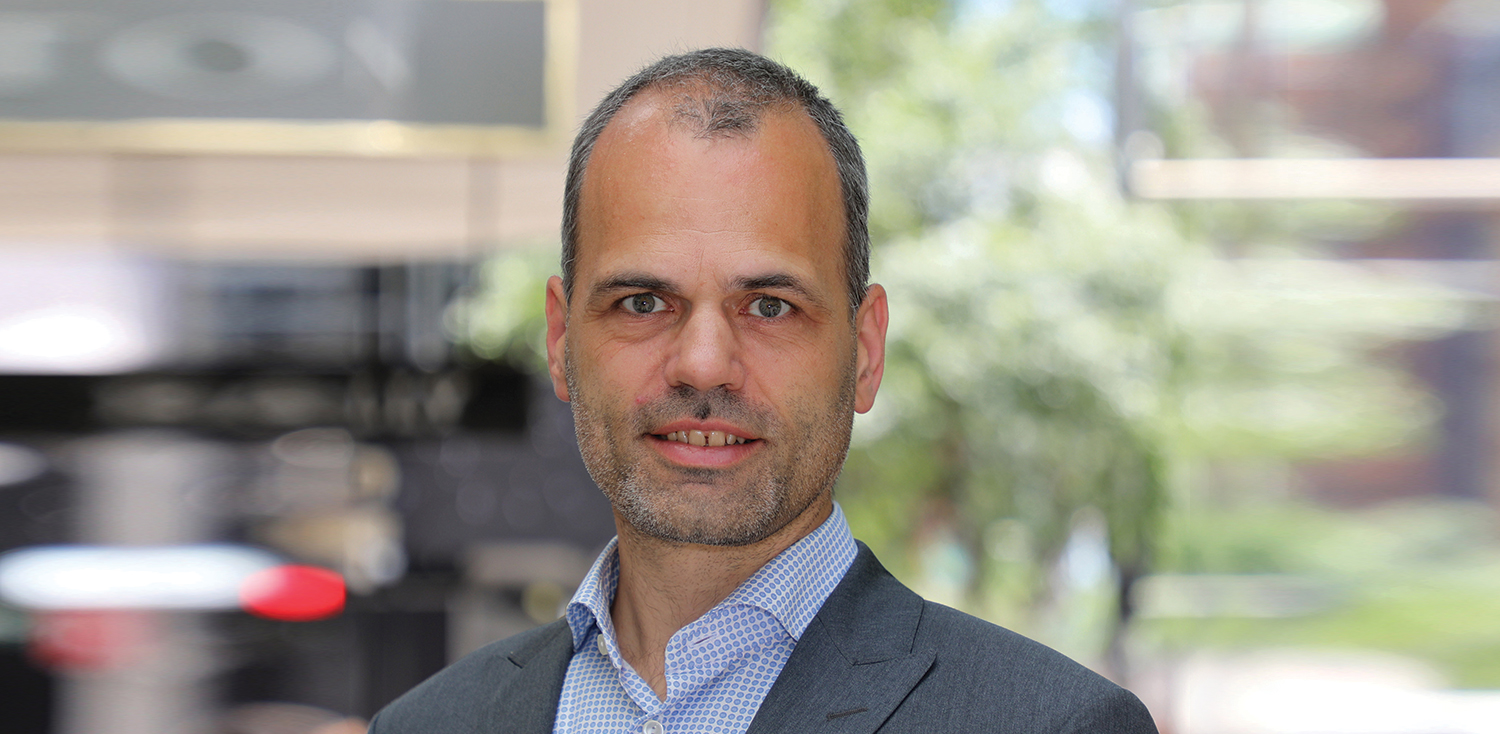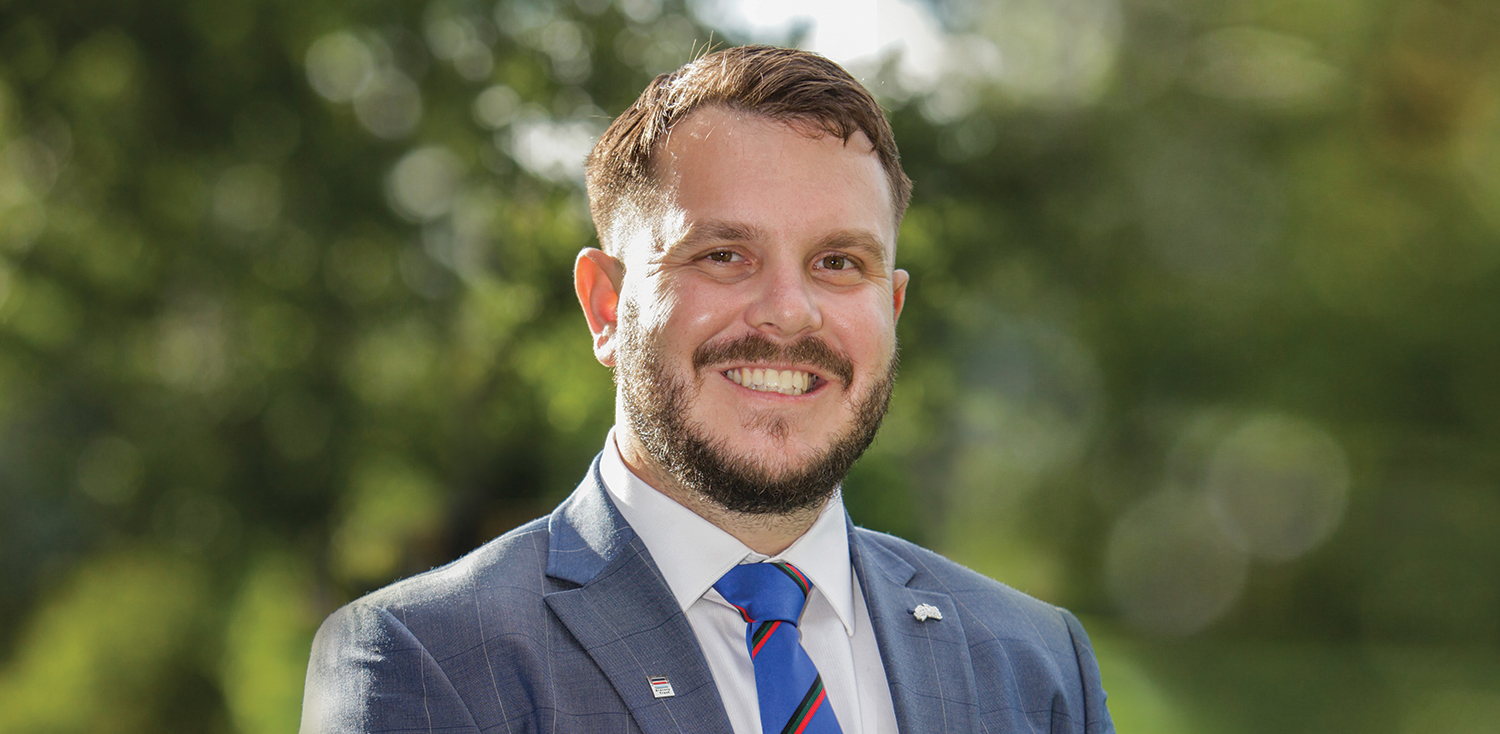Behind every great leader is a manager who offered inspiration and mentorship. We talk with four leaders to discover the best managers they ever had.
By Nicola Field
Holding the reins loosely Kristen Turnbull, Director of CoreData WA, doesn’t hesitate in nominating Andrew Inwood, founder and principal of CoreData, as the best manager she has ever worked for.
“He’s not just a good manager. Andrew is a great leader,” says Turnbull.
Turnbull began working with Inwood nine years ago when CoreData was in its infancy. It was a big change for her, as she was making a career switch out of journalism and into financial services research.
From the start Inwood stood out as an exceptional leader. “I’ve had good managers before,” says Turnbull. “But Andrew really wanted me to succeed and took the time to understand what makes me tick.” Guided by his example, Turnbull recognises the need to know her own team and keep lines of communication open. “We all have external stresses, and when you truly know your people it’s a lot easier to help them manage external issues that may be impacting their professional life.”
She says Inwood demonstrates genuine interest in his staff, and one particular instance really stands out. “One December I casually mentioned to Andrew that I’d lost my sunglasses. When Christmas rolled around, he handed out gifts to all the staff – and my present was a gift voucher for a new pair of sunglasses. It really highlighted how he listened and cared.”
More than helping her transition into a new career, he encouraged an investment in her personal brand. “Education is very important to him,” notes Turnbull. “And he suggested that I complete a Masters of Business Administration (MBA).”
What was remarkable was the no-strings-attached support provided.
“The company funded my MBA, which is an investment worth tens of thousands of dollars. Even more amazingly, there was no lock-in attached – no formal expectation that I would remain with the company, even after I had completed my MBA.”
For Turnbull, Inwood’s willingness to invest in her as an employee has created a tremendous sense of loyalty to both her leader and CoreData. Six years into the role, this two-way street bore fruit. Expecting her second child and keen to be closer to family in Perth, she approached Inwood about relocating from Sydney to Western Australia. She acknowledges that Perth was not a strategic market for CoreData, but both she and Andrew were willing to turn the move into an opportunity.
Turnbull admits, “Andrew really put his faith in me and let me spearhead CoreData’s entry into the Perth market. Andrew talks about ‘holding the reins loosely’, and by trusting me to build the Perth office, he has encouraged me to share that same approach with my own team – letting them know that support is there if it’s needed but otherwise giving them space to achieve independent success.”
Today, CoreData WA is thriving, and a little over a year ago Turnbull became an equity stakeholder in the business, a step that was especially noteworthy for her. “In previous roles I only felt valued when I had one foot out the door. Andrew has taught me to reward my people in the moment and acknowledge their value today.”
Looking back, Turnbull observes, “Having an outstanding leader has shown me the value of being willing to invest in my own people. It helps them grow – and ultimately that helps the business grow.”
Firm but approachable
Mark Hayball CMgr FIML, General Manager at RCS Telecommunications in Brisbane, says he didn’t directly work under the best manager he has encountered. Rather it was someone who worked in a different area of the business. He explains: “I wasn’t aware at the time that he was monitoring my progress. It was only much later that I connected the dots.”
According to Hayball, the light bulb moment came when he was nominated to attend in-house leadership training. “I didn’t know who had nominated me,” he says. “I later discovered it was this particular manager. After that I became much more aware of him and his management style.”
What especially impressed was the “firm but approachable” style of the manager involved. “I was in the early stages of my career, and I didn’t really know what management was all about. I wasn’t getting a great deal of leadership from my direct managers, and I was focusing on the technical process. This manager took a very different approach. He was more about engaging people, understanding individuals and what they needed to perform well.”
The absence of bias also left an impression. “I saw a sincere commitment to people in this manager. And he never showed bias to any one particular person.”
Those observations have had a lasting impact on Hayball. “Being able to recognise where staff need help, and giving them opportunities to seek recognition, are essential skills of a good manager.”
These days, it is “ingrained” in Hayball to support his team and offer recognition. It’s also become a two-way street. Mark developed a self-assessment tool for his staff to provide feedback on him as a manager. “It’s a wake-up call!” he says, though he adds that this is fundamental in developing trust. “Senior managers need to be able to guide others, but it’s also essential to be able to receive feedback and not take it personally. One of the biggest challenges facing senior managers is that they don’t let others in, so there is no real opportunity for self-reflection.”
Resilience and emotional intelligence
Aletia Fysh, Head of Marketing at Community First Credit Union in Sydney, says that throughout her career she has benefitted from the support of several good managers, and has distilled the best learnings from each into her own leadership style.
One manager in particular taught Fysh the value of brainstorming the rules of engagement with a team as a whole, so that everyone is on the same page. She notes: “When you set clear expectations it is far easier to explain to team members ‘we agreed to do this’ if things don’t go according to plan.” She adds that it is critical for the team to collectively develop these rules. “When everyone takes part in setting the rules it’s more likely each person will take ownership and adhere to the ground rules.”
Fysh says one manager stood out for encouraging leadership and development training. “This particular manager invested in staff – not just to do their roles, but to learn to lead and manage change,” she explains. “I was encouraged to attend courses that were incredibly effective at developing my leadership skills.”
One learning experience stood out in particular. “I attended a course that taught the value of listening to others to gain insights into how they think. It’s then possible to use this knowledge to convey information in a way that each different person is best able to relate to.”
She provides an example: “I was trying to explain to a colleague how we needed to improve our processes. By listening to their response I could see this person wanted numbers and statistics to make sense of what I was saying. Without this, I wasn’t able to influence the team member in the way I wanted. Realising this, I pulled together some key data and statistics, which the person took on board. I could immediately see a big difference in their reaction.”
The value of formal learning has encouraged Fysh to invest in her own team. “I strongly encourage learning and development among my people.” She is quick to point out though that this doesn’t have to mean funding expensive courses. “Development can come from something as simple as teaming a staff member with a peer they can learn from.”
Across the best managers she has worked with, Fysh says a common feature is resilience and mastery of emotional intelligence. “Managers who get overly emotional when things don’t go to plan can have a very destabilising impact on their staff,” observes Aletia. “Resilience matters because if something doesn’t work out, you need to be able to learn from the experience and not take it personally.”
One of the most useful tips Fysh has picked up from a former manager is having monthly one-on-one meetings with each of her team members. “It’s very effective,” notes Aletia. “You only need to ask three questions – ‘What’s going well?’, ‘What’s not going well?’ and ‘What can we do better?’”
According to Fysh, the beauty of this approach is that it empowers team members. “As a leader, people should feel you are open for feedback. At one-on-one meetings I hand the floor to each staff member and they run the dialogue. There is no need to write up notes. It’s about letting your people think through their progress. It’s also a good opportunity for your team to give feedback about you as a manager and leader. And you need to be prepared to take this on board.”
Galvanising a team
Benjamin Brown MIML, Graduate Civil Engineer in Bundaberg, is still in the early years of his career but he is lucky enough to have encountered a great leader in his current manager, Joe Saunders.
One of the key aspects Brown has learned from his manager is the value of culture. Brown explains that Saunders has been in his current role for 12 years and “embodies” the company’s culture: “He works in the way the company is looking for and that’s something the whole team respects as it sets a strong example.”
Brown also says he has benefited from the investment Saunders makes in one-on-one time with team members. “As I move more into a project management role, Joe regularly checks on me,” he says. “That means he can pull me up at an early stage if I am starting to take the wrong direction. I appreciate that he genuinely cares about my progress, and this gives me confidence in my role and what we’re working towards.”
One aspect of Saunders’ style that Brown particularly appreciates is his frankness. “He speaks his mind. It can be confronting at times but by calling things as they are without sugarcoating the issue, I know exactly what needs to be done to get back on track.”
As Brown’s office team expands, he finds himself moving into a project management role. He says, “I now appreciate the value of being able to galvanise a team. Joe is very good at binding everyone together and providing clear team objectives. Having firm objectives across multiple teams working on the same project helps in providing quality outcomes, and this has helped to set our company apart within the market. It’s taught me the value of keeping in touch with individual team members on a regular basis to achieve the highest level of quality with the experience they have.”
Make your mark. Go Chartered.
IML offers the prestigious and globally recognised Chartered Manager designation to leaders in Australia and New Zealand. Have your leadership experience formally recognised through IML today. Contact our Chartered Manager team on 1300 661 061 or email chartered.manager@managersandleaders.com.au
Details online at managersandleaders.com.au/chartered-manager












